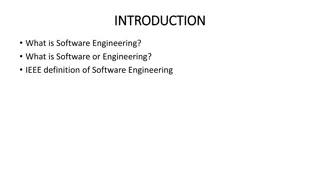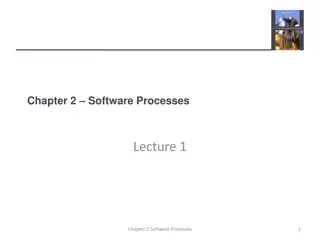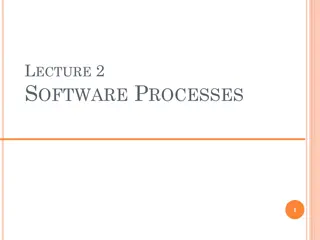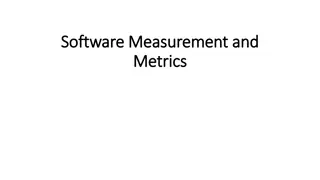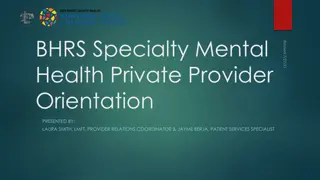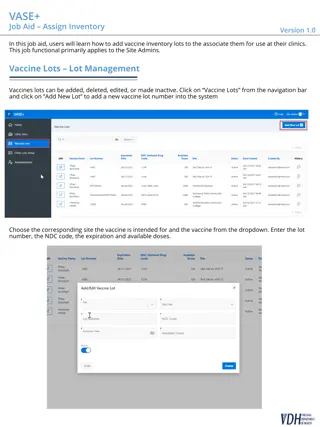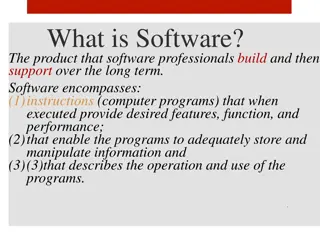Innovative Healthcare Software Development for Modern Clinics
Empower your clinic with innovative healthcare software development solutions. Our custom-built applications streamline medical processes, improve patient data management, and enhance service quality. From electronic health records to telemedicine so
Uploaded on Oct 05, 2024 | 19 Views
Download Presentation

Please find below an Image/Link to download the presentation.
The content on the website is provided AS IS for your information and personal use only. It may not be sold, licensed, or shared on other websites without obtaining consent from the author. Download presentation by click this link. If you encounter any issues during the download, it is possible that the publisher has removed the file from their server.
E N D
Presentation Transcript
How AI Is Revolutionizing Healthcare Industry?
Content 01 02 Introduction to AI in Healthcare AI-Powered Diagnostics 03 04 05 AI in Personalized Treatment AI in Robotic Surgery AI in Healthcare Management 06 Conclusion 07 Contact
Introduction to AI in Healthcare AI in Healthcare refers to the use of advanced machine learning algorithms and data analytics to improve medical services. Key Benefits: Faster diagnosis, personalized treatments, improved patient outcomes. The integration of AI is reshaping medical processes, decision-making, and patient care.
AI-Powered Diagnostics Automated Imaging: AI improves accuracy in interpreting medical images (X-rays, MRIs) faster than humans. Early Detection: AI helps in early diagnosis of diseases like cancer, heart conditions, and neurological disorders. Real-Time Analysis: AI systems analyze patient data in real-time, providing immediate and precise insights.
AI in Personalized Treatment Data-Driven Decisions: AI analyzes individual patient data (genetics, history, lifestyle) to recommend personalized treatments. Predictive Analytics: Helps doctors foresee complications and adjust treatments accordingly. Drug Discovery: AI accelerates drug development and customizes medication for specific patient needs.
Precision and Robotics in Surgery AI-Assisted Surgery: Robots powered by AI enable highly precise and minimally invasive surgeries. Reduced Recovery Time: Less invasive procedures result in quicker healing and reduced hospital stays. Examples: da Vinci Surgical System, which assists in delicate operations with enhanced precision.
AI in Healthcare Management Administrative Efficiency: AI streamlines administrative tasks such as scheduling, billing, and managing patient records. Resource Allocation: AI predicts hospital needs, ensuring proper staffing, supplies, and equipment. Virtual Assistants: AI chatbots answer patient queries and schedule appointments efficiently.
Conclusion AI is transforming healthcare through improved diagnostics, personalized treatments, and efficient operations. As adoption grows, ethical concerns like privacy and transparency must be addressed. The future promises innovative advancements, making AI a cornerstone of modern medical care
Contact Us +1-855-796-2773 info@synapseindia.com www.synapseindia.com 1178 Broadway, 3rd Floor #1346, New York, NY 10001, United States





